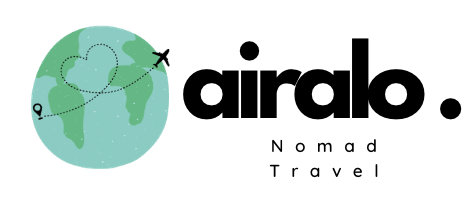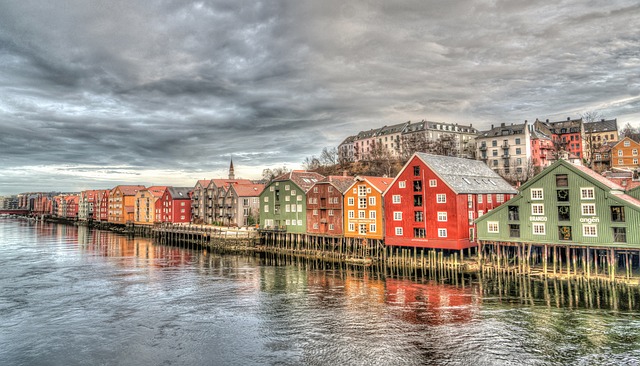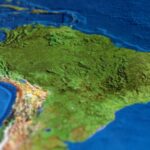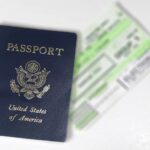
As remote working gradually becomes a global trend, Norway has also introduced visa policies to adapt to this change, attracting a large number of digital nomads and remote workers. Norway’s digital nomad visa (also known as the “remote work visa”) offers a new opportunity for internationals looking to live and work digitally in the Nordic country. This article will detail the requirements, application process, and things to note about living in Norway for a digital nomad visa in Norway.
1. What is the Norwegian Digital Nomad Visa?
Norway’s digital nomad visa is designed for foreigners who want to live in Norway and work remotely. Unlike traditional work visas, this visa allows applicants to legally reside in Norway while providing services to employers or clients abroad without having to engage in local employment in Norway. Below are the detailed features and requirements of this visa:
Visa applicable groups
This visa is mainly intended for the following groups:
- freelancer: For example, designers, writers, programmers, translators, marketing experts, etc., who provide services to foreign customers through the Internet.
- remote worker: Those who are employees of a foreign employer or company and are able to work online from anywhere.
- self-employed entrepreneur: An individual who runs an online business, such as an e-commerce store or an online consulting service.
working method
People holding a digital nomad visa do not need to look for work in Norway’s local labor market. They can continue to provide online services to foreign employers or clients without having to hire a local company in Norway. In other words, the core requirement for the visa is that the applicant must prove that he or she works for a non-Norwegian company or individual, and that all work content is completed through the Internet.
income requirements
In order to prove that applicants can maintain their living expenses in Norway, the Norwegian government sets minimum income standards. Applicants need to provide proof of income sources to ensure that their monthly income reaches a certain level. The specific amount will vary depending on the size of the family, but generally requires an income of more than NOK 300,000 (approximately EUR 30,000).
No local employment required
Unlike traditional work visas, the Norwegian Digital Nomad Visa does not require applicants to work for a local company. This means that applicants do not need to participate in the Norwegian job market or look for work in Norway. As a result, digital nomads can choose to work freely within their own industry or field, regardless of geographic location.
Living and working environment
Norway is a country with a very high quality of life, with magnificent natural landscapes and a complete social welfare system. Digital nomads can enjoy a peaceful working environment in this beautiful country and take advantage of flexible working options. Norway’s high level of education, healthcare and security make it an ideal place to live and work for remote workers here.
Visa Advantages
- work flexibility: There is no need to be limited by the local positions and labor market in Norway, and you can freely choose the projects or clients you want to work on remotely.
- freedom of residence: You can enjoy a high quality of life in Norway while maintaining an income by working remotely.
- enjoy social benefits: Digital nomads holding this visa usually have the opportunity to enjoy Norway’s public services such as medical care and education.
2. Visa requirements
To apply for a digital nomad visa in Norway, applicants must meet a clear set of requirements covering income, remote working, health insurance, and proof of funds. The following is a detailed description of the requirements:
income requirements
Applicants must prove that they have sufficient income to support themselves and their family in Norway. The Norwegian government sets minimum income standards to ensure that applicants are not dependent on social welfare or other public resources while in Norway. According to the latest regulations, the applicant’s monthly income must not be less thanNOK 300,000(approximately30,000 euros), this income should be an after-tax amount, stable and sustainable.
- source of income: Income must be derived from working remotely, i.e. providing services to a foreign employer or client via the Internet. Applicants need to provide detailed work contracts, pay stubs, bank statements and other materials to prove that they meet the income requirements.
- Influence of family members: If the applicant plans to travel to Norway with his or her family, the required minimum income will increase accordingly. The Norwegian Immigration Service adjusts the income requirements based on the number of family members and the cost of living.
remote work
Applicants must prove they are a legitimate practitioner working remotely. The nature and work content of the remote work needs to be clearly visible, and the applicant must provide services to a foreign employer or client and not work for a company in Norway. To do this, applicants need to provide the following materials:
- Proof of work: Applicants need to provide a work contract or employment agreement, stating that they are providing services to foreign employers and that the work content is completed entirely through the Internet.
- Client or Employer Information: Provide detailed information about the employer or client, including company name, contract terms, job responsibilities, etc., to prove that you are not dependent on the Norwegian labor market.
health insurance
Applicants are required to purchase appropriate health insurance to ensure that their medical expenses are covered during their stay in Norway. Norway has an excellent healthcare system, but non-Norwegian residents generally need to pay for medical services out of their own pocket or through private insurance. Therefore, digital nomads must provide proof of health insurance to ensure coverage in the event of a sudden illness or emergency.
- insurance requirements: Health insurance should cover the medical expenses that the applicant and his family may incur during their stay in Norway, including hospitalization, diagnosis and treatment, medicines, etc. If the applicant is from an EU or European Economic Area (EEA) country, the requirements may be met through an EU Health Insurance Card (EHIC), but if from a non-EU country, private health insurance will be required.
Proof of funds
In addition to proof of income, applicants are also required to show proof of sufficient funds to ensure that they do not rely on social benefits for daily living expenses in Norway. Specific requirements for proof of funds include:
- Bank deposit certificate: Applicants need to provide a bank deposit certificate showing that there are sufficient funds in the account to cover living expenses. Usually, the Immigration Bureau will require bank deposits to meet certain standards to ensure that applicants can be self-sufficient.
- Other asset certificates: If the applicant owns other assets (such as real estate, stocks or other investments), they can also submit relevant certificates to further prove that they have sufficient funds to support life in Norway.
3. Application process
The process of applying for a Norwegian digital nomad visa is relatively simple, but applicants need to prepare sufficient materials and submit relevant documents in strict accordance with the requirements of the Norwegian Immigration Service. The following is the detailed application process:
1. Apply online
Applicants first need to submit their visa application online through the official website of the Norwegian Immigration Institute (UDI). Applicants should create a personal account and complete the online application form. This process includes:
- Fill in personal information: Applicants need to provide basic personal information, including name, date of birth, contact information, nationality, passport information, etc.
- Upload required files: After completing the application form, the applicant needs to upload a series of supporting documents, including:
- Proof of income: Bank deposit certificate, salary slip or contract, proving that you have a stable source of income, and your monthly income is no less than NOK 300,000 (approximately 30,000 euros).
- remote work contract: A work contract or employment agreement certifying that you are a freelancer or employee working remotely for a foreign company or client.
- Proof of health insurance: Prove that you have purchased valid health insurance that can cover medical expenses during your stay in Norway.
- Proof of funds: Bank deposit certificate showing that you have sufficient funds to support your living expenses in Norway.
After completing the online form and uploading all documents, the applicant will pay the visa application fee. The amount of the fee will vary, usually you will need to pay approx.NOK 5,000(approximately €500) application fee.
2. Application review
After submitting the application, the Norwegian Immigration Service will enter the review stage. This stage includes verifying the applicant’s materials and information and assessing whether they meet the requirements for the digital nomad visa. Specific steps for review may include:
- Document review: The Immigration Bureau will review in detail all documents submitted by the applicant, including proof of income, work contract, health insurance and proof of funds, etc., to ensure the authenticity and completeness of the documents.
- Supplementary material requirements: During the review process, the USCIS may request additional information or supplementary documents from the applicant. For example, if the applicant’s proof of income is not clear enough, the USCIS may request additional sources of income or tax information. If health insurance coverage is insufficient, applicants may be required to provide detailed coverage terms.
- background check: The Immigration Bureau will also check the applicant’s background to ensure that the applicant has no criminal record or other factors that would affect the visa application.
The length of review is usually2 to 3 months, but it may also be extended due to factors such as the volume of applications and the complexity of the applicant’s background. Applicants can log in to the official website of the Immigration Bureau at any time to check the application progress.
3. Visa approval and issuance
Once the application is approved, the applicant will be notified and asked to collect the visa at the designated Norwegian consulate or embassy. Specific steps include:
- Visa Notice: The Norwegian Immigration Service will notify the applicant of the visa approval via email or online account. At this time, the applicant will be informed of the specific validity period and other requirements of the visa.
- Get a visa: Applicants should go to the nearest Norwegian embassy or consulate or visa center according to the guidance of the Immigration Bureau, submit relevant materials, and receive a visa. When applying for a visa, the applicant may need to provide passport, photos and other supplementary information.
- Entering Norway: After holding the visa, the applicant can enter Norway according to the validity period of the visa. Upon entry, the Immigration Bureau may check the applicant’s information again to ensure that it meets the visa requirements.
4. Steps after arriving in Norway
After obtaining a visa and successfully entering Norway, applicants need to pay attention to the following points:
- Registered address: According to Norwegian law, all foreign citizens are required to register with the local police station upon entry, especially if they plan to stay in Norway for more than6 months。
- Renew insurance: Although health insurance is provided at the time of application, the Immigration Service may require periodic renewal and confirmation of the validity of the insurance within Norway.
- tax registration: If a digital nomad holding a visa has a source of income, they may need to report the income to the Norwegian tax authorities to find out whether they are subject to Norwegian taxes.
4. Visa validity and renewal
Digital nomad visas in Norway are usually valid for1 year, but if the applicant meets certain conditions, they can apply for renewal after the visa expires to continue living and working in Norway. Below are detailed instructions regarding visa validity and renewal:
Visa validity
- Initial visa period: The initial validity period for a Norwegian digital nomad visa is usually1 year. During this year, applicants can legally reside in Norway and work remotely without being subject to the local labor market in Norway.
- Visa type: This type of visa is a temporary residence permit, which is different from a work visa or a long-term residence visa, so it is specifically targeted at digital nomads, freelancers and remote workers. The validity period of the visa is calculated from the date of entry after approval.
Renewal conditions
Before the visa expires, applicants can submit a renewal application to extend their stay and work in Norway. The specific requirements for renewal are as follows:
- Proof of income: Applicants need to provide proof of current income to prove that they still have enough income to maintain their lives in Norway. Income must meet the minimum standards set when applying – monthly income no less thanNOK 300,000(approximately €30,000). If accompanied by a family member, the income requirement increases.
- Materials that need to be submitted include the latest tax returns, bank statements, employment contracts or proof of self-employment, etc.
- Remote work certification: When renewing the visa, applicants need to prove that they continue to work remotely, and that the job content and source of income still meet the requirements of the digital nomad visa. Applicants are required to provide written verification from their employer or client, or an updated work contract.
- health insurance: Applicants must provide proof of valid health insurance to ensure that their medical expenses continue to be covered during their stay in Norway. The insurance company needs to provide a current insurance policy or certificate.
- Proof of funds: Applicants also need to submit updated bank balance certificates showing that they are still self-sufficient in Norway. This move is primarily to ensure that applicants are not dependent on social benefits or public resources during visa renewal.
Renewal application process
The application process for renewal is similar to the first application. Applicants need to passNorwegian Immigration Service (UDI) Submit your application to the official website and upload all relevant documents as required. The process usually includes:
- Submit renewal application: Before the visa expires, the applicant must3 months Submit your renewal application to ensure sufficient time for review. Applicants need to fill in relevant forms and provide required documents (such as income certificate, work contract, etc.).
- review process: The Immigration Bureau will review the application materials to confirm whether the applicant meets the requirements for income, health insurance, remote work, etc. If the materials are complete and meet the requirements, the renewal will usually be2 to 3 months Processed within.
- Obtain renewal approval: If the renewal application is approved, the applicant will receive a new visa approval notification. The new visa is usually valid for1 year, applicants can continue to live in Norway and work remotely.
Non-renewable circumstances
In some cases, applicants may not be able to successfully renew their digital nomad visa, such as:
- Insufficient income: If the applicant cannot prove that he or she has sufficient income to support life in Norway at the time of renewal, the visa may not be approved.
- Changes in work situation: If the applicant no longer works remotely or provides services to the foreign employer, the visa renewal may fail.
- Violation of regulations: If the applicant violates local laws or visa regulations during his stay in Norway, such as working illegally, overstaying, etc., the visa renewal may be refused.
Long-term residence options
If applicants wish to live in Norway permanently and not just work remotely via a digital nomad visa, they may consider applying after multiple renewalspermanent residence or long term residence visa. The application requirements for long-term residence visas are stricter and usually include:
- Length of continuous residence in Norway.
- Have sufficient income, stable employment or business activities.
- Have Norwegian language skills and the ability to integrate into society.
5. Things to note when living in Norway
Living in Norway presents both opportunities and challenges for digital nomads. To ensure quality of life and smooth adaptation to the local environment, here are some key considerations:
stay
- Accommodation costs are higher: Accommodation prices in Norway, especially in the capitalOslo、Bergen Big cities are more expensive. Rental prices vary widely depending on the city and location. For example, in central Oslo, the monthly rent for a one-bedroom apartment can be as much asNOK 10,000 to 15,000(approximately 900 to 1,400 euros), while in small cities or suburbs, rents are relatively low, but transportation costs may be higher.
- Choose between shared accommodation or short-term rental: To control accommodation costs, digital nomads can choose to share an apartment with others, or chooseAirbnb、Booking.com and other short-term rental properties on the platform. Sharing a house not only saves money, but also allows you to communicate with local or other international people and enrich your social life. In addition, in some small cities and tourist areas, you can also consider short-term vacation rentals or small apartments, these options usually provide greater flexibility.
- Accommodation recommendation platform: Used by many digital nomads and expats in Norway Finn.no and Hybel.no Look for local websites to find information about flats or short-term rentals. Make sure to plan your accommodation in advance, especially during peak tourist seasons when availability can be tight.
language
- The official language is common with English:The official language of Norway isnorwegian, but almost all Norwegians are fluent inEnglish. In daily life, the spread of English makes it easy for digital nomads to communicate with locals, especially in cities and business areas. Whether it’s shopping, dining or at work, English doesn’t usually pose a barrier.
- Benefits of learning Norwegian: Although English is highly popular in Norway, if you plan to live for a long time and integrate into the local society, learning Norwegian will greatly help you adapt to the local culture and improve communication with colleagues and neighbors. Additionally, many job opportunities and government services may favor Norwegian, and especially for digital nomads looking to thrive long-term, mastering Norwegian will open up more opportunities for career advancement and social life.
- Language learning resources: There are many online and offline language learning resources in Norway, like Duolingo、Babble and Norwegian on the Web (NoW) Other platforms provide Norwegian courses, suitable for beginners. Many cities also provide free or low-cost language courses to help foreigners integrate into local society faster.
tax obligations
- tax residence: If a digital nomad stays in Norway longer than183 days(i.e. approximately 6 months), they will be considered tax residents in Norway. This means you will need to declare your worldwide income under Norwegian tax law and may need to pay tax.
- Income declaration and taxation: In Norway, the tax system is relatively transparent, and the tax office (The tax authority) provides detailed tax guidance and an online filing platform. Digital nomads need to followNorwegian personal income tax Provides for income declaration. If your income comes from other countries, international tax agreements may also be involved to avoid double taxation. It is recommended to consult a professional tax advisor to ensure compliance with legal requirements.
- tax rate: Norway’s personal income tax rate is relatively high, ranging from22% from , up to47.8%, the specific tax rate depends on the amount of income. Therefore, it is important for digital nomads to understand the Norwegian tax system and the deductions it applies to.
- Pensions and social security: As a tax resident, you may also need to pay social security fees, which are used to cover pension, unemployment, medical and other benefits. While digital nomads may not receive all social benefits, they are still required to pay fees when legally working in Norway.
culture and lifestyle
- Quality of life and natural environment: Norway is considered one of the countries with the highest quality of life in the world, enjoyingrich natural resources and high standards of public services. Norway’s natural environment offers digital nomads a wealth of options for outdoor activities, such asHiking、ski、riding、boating and fishing wait. especially inautumn and winter, you can experience the unique Northern Lights and ski resorts.
- Focus on health and work-life balance: Norwegians attach great importance to health and leisure, and their work and life rhythms are usually balanced. Many companies have implemented flexible working systems and value the mental health and physical health of their employees. As a digital nomad, you can also enjoy this flexible work arrangement and balance work and personal life.
- Social interaction and community support: Norway is a country with a relatively open social culture, especially in big cities, where digital nomads canEvents, social gatherings and online communities(like Meetup、Facebook Groups) to network with other international talent. Norway is also very environmentally conscious, with many people using public transport, cycling or walking, which provides digital nomads with the opportunity to participate in environmentally friendly activities with locals.
- Leisure and entertainment activities: In addition to their rich natural landscapes, Norwegian cities also offer a wide variety of recreational activities, such asmuseum、concert、dramatic performance and food festival wait. In addition, Norway’scoffee culture It is also very developed, and you can communicate with friends or colleagues in cafes everywhere and enjoy your leisure time.
6. Visa FAQs
When applying for a Norwegian Digital Nomad Visa, many applicants have some common questions. Here are detailed answers to some important questions to help you better understand the visa requirements and application process:
1. Do I need a letter of recommendation from my employer?
- unnecessary. The Norwegian Digital Nomad Visa does not require a letter of recommendation from an employer. Applicants need to prove that they have a stable source of income from remote work. Typically, these supporting documents can be:
- contract: If you are a freelancer, provide a contract with your client describing the work and sources of income.
- bank statement: Prove that your income is sustainable and meets the income requirements of the Norwegian Immigration Service.
- tax records: Provide tax filing records from the past few months or years to show your income stability.
- Proof of employment: If you work for a foreign company, provide a letter from your employer confirming the nature of your work and income.
- These documents will help the Norwegian Immigration Service assess whether you meet the income requirements.
2. Can I apply with my family members?
- Can. The Norwegian Digital Nomad Visa allows applicants to bring their spouse and children with them to Norway. However, please note the following points:
- health insurance: Spouses and children need to prove that they also have adequate health insurance to cover their medical needs while in Norway.
- Proof of funds: You need to prove that you have sufficient income or funds to support you and your family in Norway, including housing and daily expenses.
- children’s education: If you are traveling with children, it is also very important to understand their children’s education system in Norway. Public schools in Norway are usually free, but there may be some extracurricular activity fees involved.
- Visa application process: Spouses and children need to submit visa applications through corresponding procedures and provide corresponding materials, which are usually similar to those of the applicant.
- Make sure to provide all relevant supporting documents when submitting your application to facilitate the successful completion of your family member’s visa application.
3. Are there any restrictions on working in Norway?
- Yes, there are restrictions. The Norwegian digital nomad visa only allows applicants to work remotely, i.e. provide services to foreign employers or clients. Specifically, you cannot work for employment with a local company in Norway. If you plan to work for a local company in Norway, you will need to apply for other types of work visas, such as:
- work permit visa: This visa is for foreign workers who find local employment in Norway. Unlike the digital nomad visa, this visa requires applicants to provide labor services to Norwegian companies.
- Short term or long term work visa: If you have a regular employer working in Norway, or you are an employee of a multinational company, you may need to apply for a specific type of work visa.
- Remote workers may violate visa regulations if they carry out work activities related to the local labor market in Norway, so it is important to clearly understand the restrictions and scope of the visa before applying.
4. Can I have multiple remote jobs in Norway?
- Can. If you are freelancing or working remotely and meet the income requirements, you can provide services to multiple foreign clients at the same time. No matter what you dofreelancer、remote workers, or running your own company, you can live in Norway and continue to work remotely as long as your income source meets the requirements.
It should be noted that although you can engage in multiple remote work projects, each job must meet the income requirements of the Norwegian Digital Nomad Visa and do not involve the labor market of local Norwegian companies.
5. What if my income is unstable?
- Income Proof Flexibility: If your income fluctuates, such as if you are a freelancer or a contract worker, you can provide income records over the past few months or year to prove the stability of your income. The Norwegian Immigration Service will assess whether you meet the requirements based on your income trends. Income stability can be demonstrated in the following ways:
- supply Multiple customer contracts or long-term cooperation agreement.
- supply Bank deposit records for multiple months, showing revenue sustainability.
- If you have seasonal or project-based income, attachComplete tax returns for the past year。
- These documents help prove that your financial situation is sufficient to support your living needs in Norway, even if your income fluctuates during certain months.
6. If I am not ready to return to my country after my visa expires, can I renew it?
- Can be renewed, but the relevant conditions need to be met. The Norwegian digital nomad visa is usually valid for 1 year and can be renewed upon application. When renewing, you will need to provide:
- Proof of continuing to meet income requirements: Prove that you have continued to have sufficient income to support your life in Norway in the past year.
- Proof of health insurance and funds: You still need to have valid health insurance and demonstrate sufficient funds to continue living in Norway.
in conclusion
Norway’s digital nomad visa provides an ideal platform for remote workers, freelancers and self-employed entrepreneurs to live and work. With its high-quality living environment, generous social benefits and flexible work options, this visa provides a stable and attractive option for global digital nomads. However, applicants must meet a series of requirements, including adequate sources of income, health insurance, proof of funds, and legality for remote working, to ensure they are self-sufficient and comply with Norwegian laws. After successfully obtaining a visa, digital nomads can not only enjoy Norway’s beautiful landscape and good working environment, but also experience the unique social welfare system of the Nordic countries.
For digital nomads interested in working in Norway, it is important to understand the visa requirements, application process and considerations. By properly preparing relevant materials and ensuring that all application criteria are met, applicants can successfully obtain a visa and enjoy the freedom to work and live in Norway for a long time.





